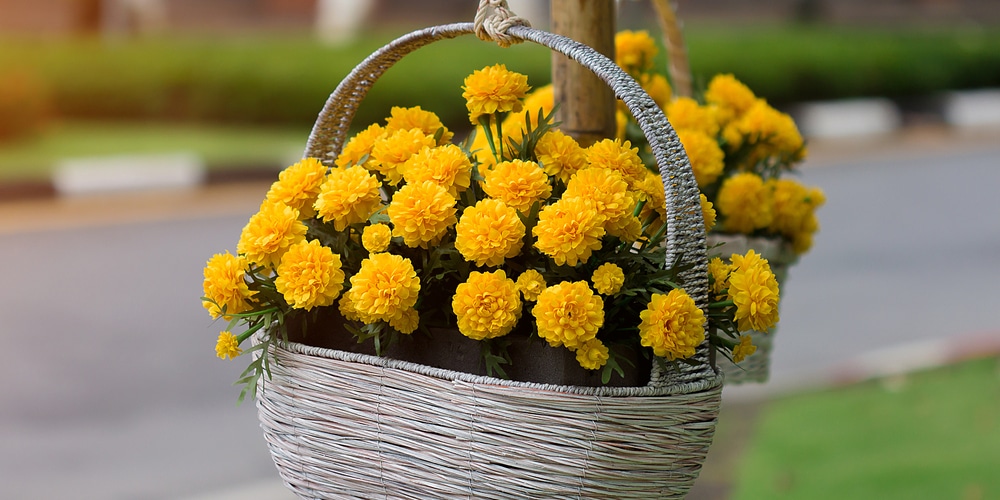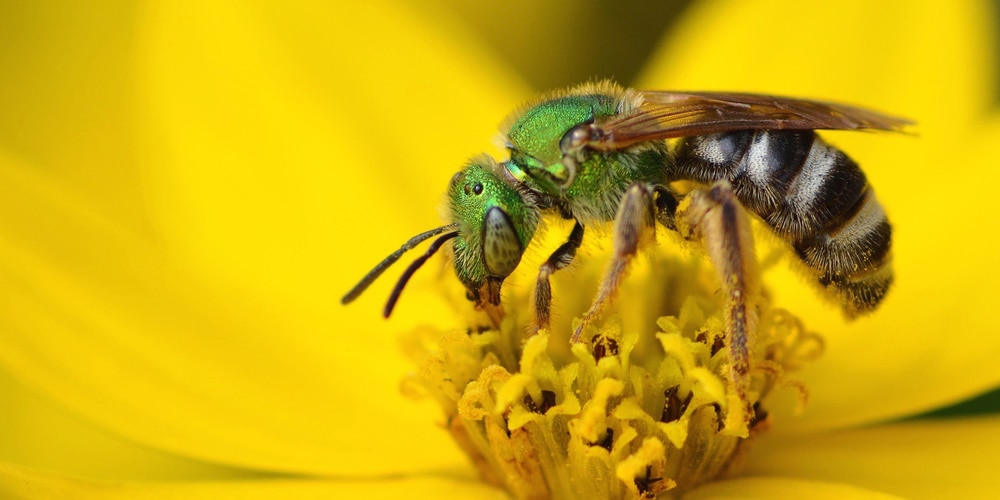Marigolds are among the best interplant flowers that will not only add a pop of color to your garden but also help drive away notorious stubborn insects and pests. With brightly colored flowers in your garden, bees buzzing around the garden in spring and summer may not be a surprise to you. You may be wondering, ‘do bees like marigolds?’
However, considering that there has been a debate on whether or not some species repel bees, it is important to understand which marigold species attract bees. Read on to know more about bees being attracted to marigolds.
Do bees like marigolds?
Marigolds fall in the same classification as sunflowers and have a variety of species, each with unique characteristics. Even though some gardeners believe that marigolds scare away bees, the fact is that not all marigolds repel bees.
There are two common marigold species, the corn marigold, and the pot marigold, that attract bees. Other marigolds attract a few bees, honey bees, to be specific.
Marigolds have bright yellow flowers that can be spotted by bees while foraging. The bright color serves as the greatest attractor of bees to these flowers.
After all, most plants with brightly colored flowers usually attract bees. The flowers are wide enough and have sizable flower petals where bees can get support as they feed on pollen grains and collect nectar, which are staples for bees.
Bees will land on marigold flowers and feed on the nectar produced within the flowers until they get enough of it. They use the nectar they collect to make honey.
Besides collecting nectar, bees will feed on marigold pollen grains. Thankfully, marigolds produce an excess of them. The bees enjoy feeding on pollen grains as the grains give them energy and proteins, making them able to fly from one flower to another and back to their hives.
Another reason why bees, mostly honey bees, land on marigolds is the scent these flowers produce. Even though the marigold smell can be pungent to some insects and probably some bees, it does not turn away honey bees.
The honey bees are usually comfortable with this scented smell and will enjoy their stay on the flowers.
Notably, there are a few species of marigold that are considered to repel bees or, at least, not attract bees and a lot of other insects. Even so, they may not be very effective at repelling bees because they will not scare away all bee varieties.
If you are considering bees in your garden as a nuisance and want to keep them away, planting marigold species that are said to repel bees may not produce results.
Overall, bees are attracted to marigold flowers and will use the nectar they tap to make honey. Of significance, apart from the honey harvested by bee farmers for human consumption, the honey serves a great purpose in keeping bees during winter.
Without honey, bees may not survive through winter, and that is why they work hard to collect enough nectar in spring and summer from flowers like marigolds.
Do bees pollinate marigolds?
Bees are common insect pollinators. Their pollinating task makes many gardeners believe that the relationship between bees and flowers is mutual.
Bees feed on marigolds and carry away pollen grains and deposit them to the next flowers. Also, while sucking nectar and feeding on pollen grains, bees make a passage for pollen grains to get to the stigma, hence aiding pollination.
The pollination process kicks off fertilization and production of fruits and seeds in plants and flowers like marigolds. Typically, bees are natural cross pollinators for marigolds.
What other insects do marigolds attract?
Even though marigolds are known to repel a variety of insects and bugs, there are a few species that attract some insects and bees. Apart from the honey bees, there are some insects and pests attracted by some marigold species.
- Butterflies
- Ladybugs
- Hoverflies
- Predatory bugs
- Parasitoid Wasps
- Whiteflies
- Aphids
- Lacewings
- Ladybirds
The way marigolds attract insects is considered beneficial to the garden, whether they attract them directly or indirectly.
For instance, aphids get attracted more to the marigolds, thus minimizing the infestation that would have otherwise affected your crops or vegetables—some, like ladybirds, land on the marigolds to feed on the already existing pests and insects.
Do bees like marigolds: Conclusion
Generally, bees love marigold flowers and are attracted to them for various reasons. Bees feed on marigolds and make honey from the nectar they collect. They also help pollinate marigolds.
Related Article: Do Bees Like Roses?


